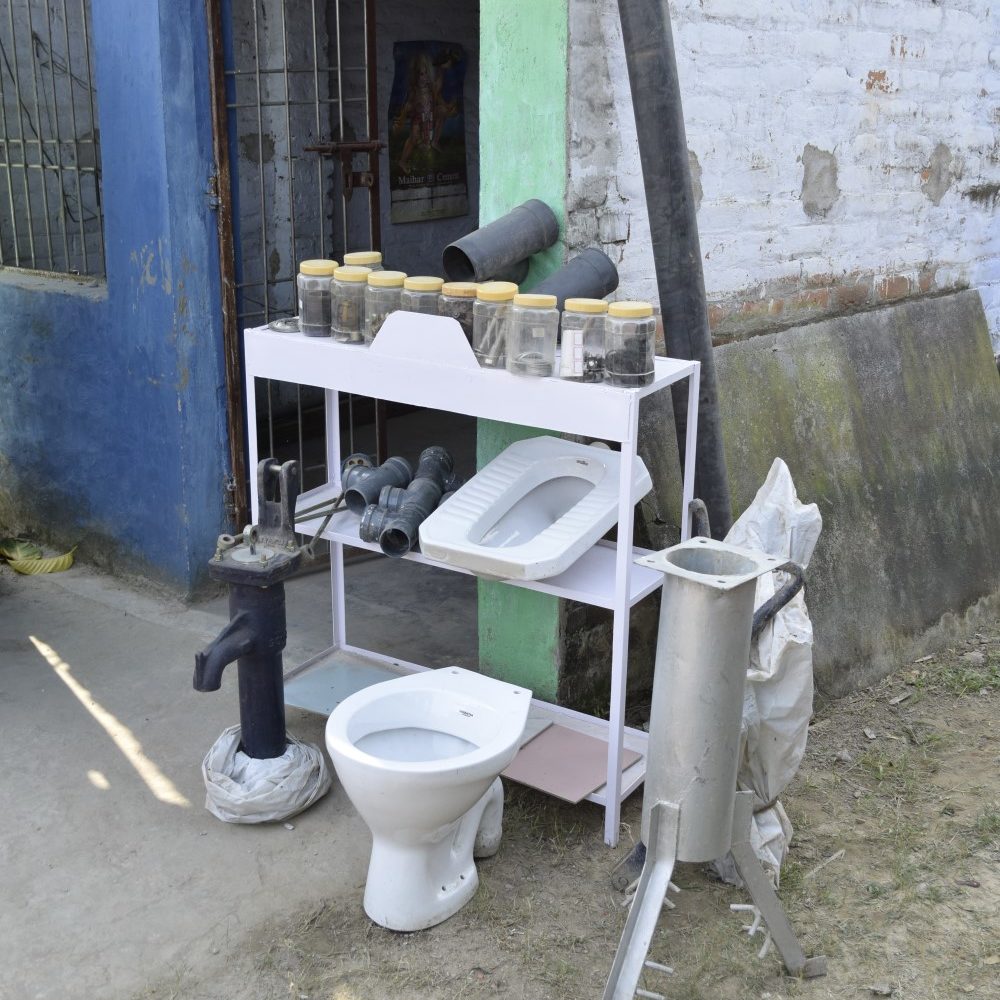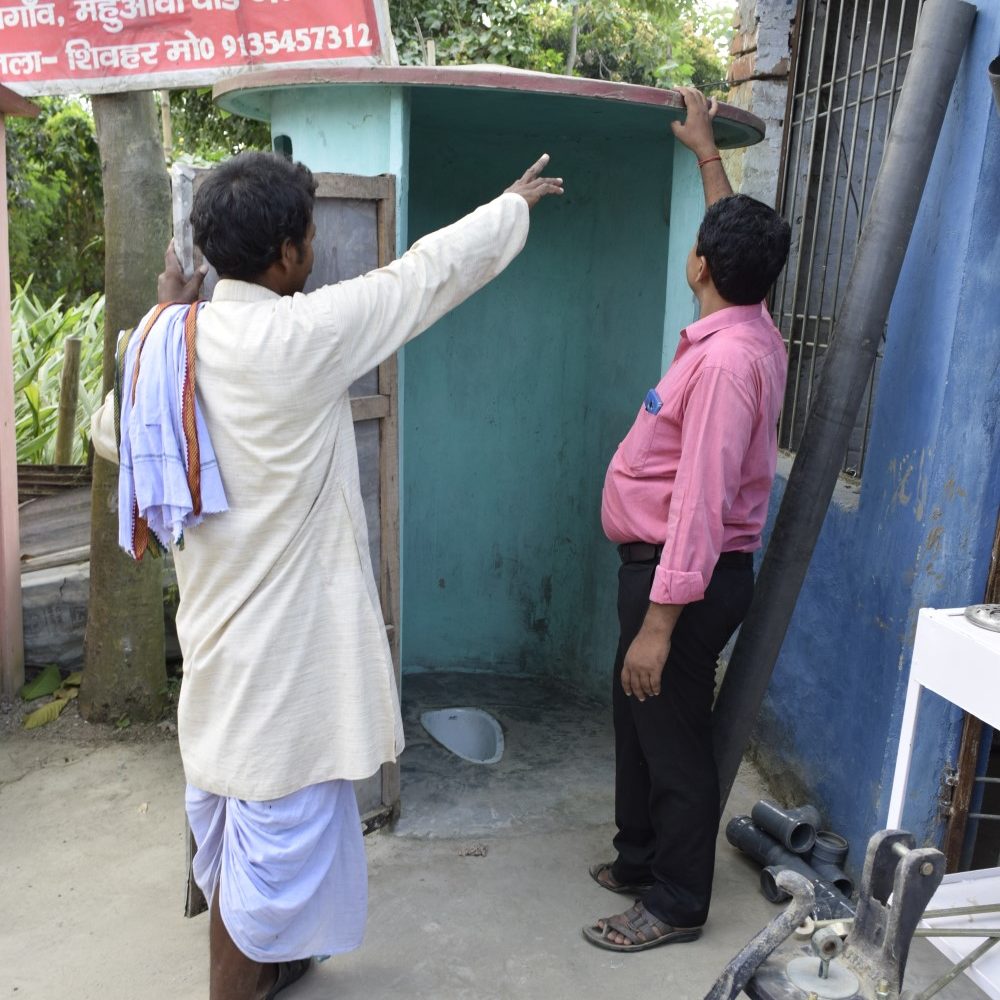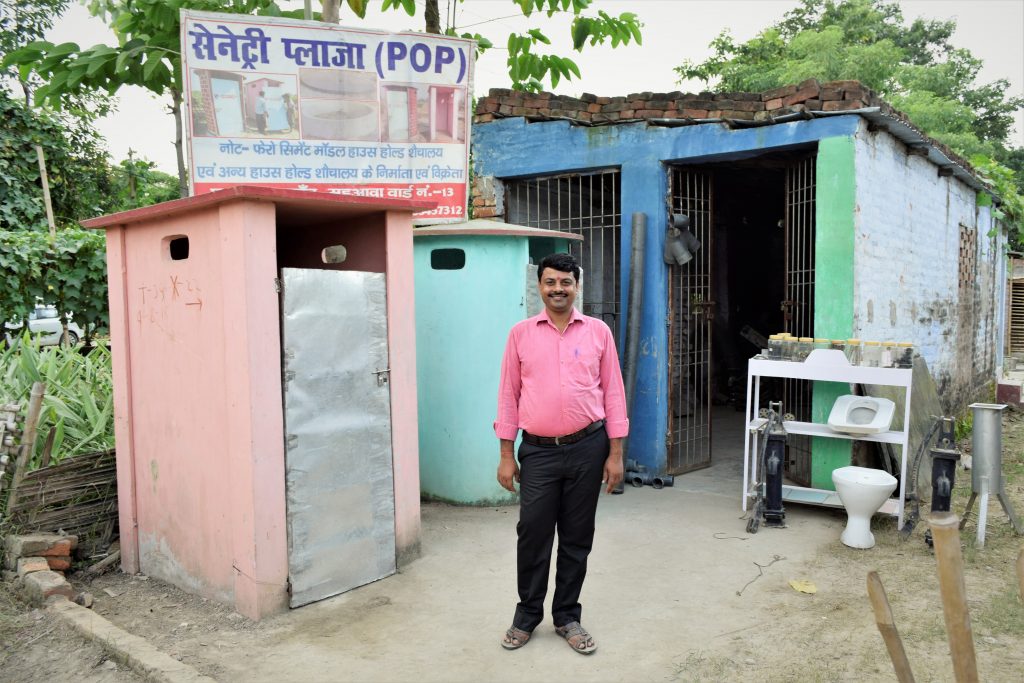Dharanidhar Kumar has always been known as "DK" to his friends. But now he has a new nickname – The Toilet Seller. And he’s ok with that.
A major component of Water For People’s approach to ensuring sustainable sanitation is supporting locally-led sanitation businesses. These businesses are developed by entrepreneurs – like DK – to fill a gap in the market, providing families with safe, affordable, and uninterrupted sanitation services because providers are local, not miles away. This work is part of our "sanitation as a business" approach.
But what does this market-based sanitation programming look like in practice? What services and materials do the businesses provide, and is there sufficient demand for them? Does Water For People’s support really spark these entrepreneurs to continue evolving and growing to meet the needs of their communities?
DK lives in Sheohar District in the northwestern state of Bihar, India. Among other community development activities he was involved in, DK had been trying to help families construct toilets.
But he kept running into obstacles.
The main challenge was the availability of materials to construct better bathrooms. DK would have to travel to neighboring cities or districts to obtain the materials families needed. So although the demand for better toilets existed, he couldn’t meet that demand.
In Bihar, Water For People, alongside local partners, works with an entrepreneur to create a Point of Purchase (POP), a one-stop shop for all sanitation needs. Water For People and its partners provide training on numerous topics, including site selection for the shop, business and marketing skills, and technical skills such as constructing toilet slabs and installing latrines. The entrepreneur invests in establishing the shop, with Water For People providing connections to microfinance institutions (MFIs) for a seed loan as needed. Water For People also works with these MFIs to provide sanitation loans to families for building household latrines, thereby stimulating the demand for the POP’s services.


The POP is both a small factory and a point of sale. The proprietor crafts the concrete slabs and rings for latrines. These materials are stocked in the store alongside pipes, doors, ceramic toilet pans, and more. In addition to selling these materials, many POP entrepreneurs provide latrine installation as a service to customers.
"Water For People trained us not only in building a variety of toilets but also equipped us with the right marketing techniques to sell them," explains DK. "My business improved as people started to appreciate the importance of toilets. I knew I hadn’t made a mistake getting into this business."
The demand for latrines was high, and business was booming. Now the demand has tapered off as most households have already purchased a latrine. But the beauty of this model is that it does not instruct the POP owners on what to do next. Instead, the model relies on the entrepreneur to see new opportunities for growth and pivot accordingly.
Here DK’s entrepreneurial spirit shines. "Now is the time for me to start storing high-end accessories, such as tiles, doors, taps, and other fittings for beautifying bathrooms," he says. "Also, since the town got electricity this year, now people want running water in their toilets."
DK’s marketing training has been helpful as he grows his business. "When people come to me saying they want a tap in their bathroom, I say, ‘why don’t you get some tiles, too?’"
Although DK’s Toilet Seller nickname started as a skeptical joke about whether his business would take off, now everyone is appreciating the importance of what he does. And DK couldn’t be more proud of the business he’s started and grown.
"I feel like I have contributed to the transformation of the country," he says.

